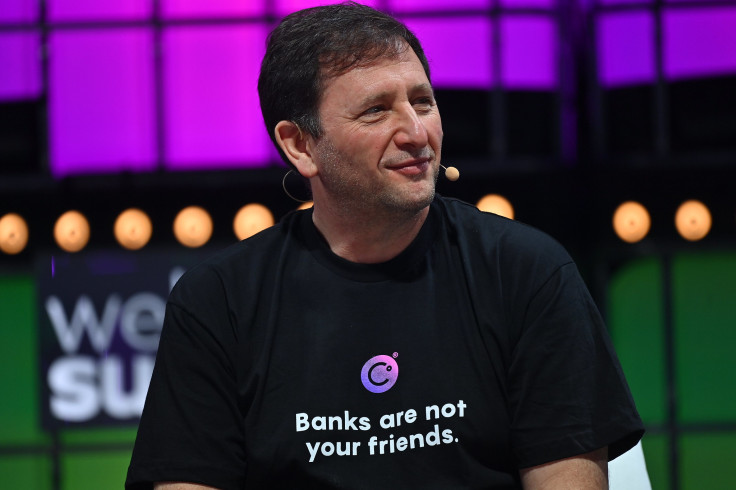Who Is Alex Mashinsky: Quick Facts On Celsius Venture And Latest 12-Year Prison Sentence
Celsius reported a £900 million ($1.2 billion) deficit at time of bankruptcy with £3.53 billion ($4.7 billion) owed to users.

Alex Mashinsky, the embattled co-founder of cryptocurrency lending platform Celsius, has been sentenced to 12 years in prison for securities and commodities fraud.
US District Judge John Koeltl delivered the sentence in New York and follows Mashinsky's December 2024 guilty plea to two counts of fraud.
Pleading Guilty of Fraud
Mashinsky admitted to misleading customers about Celsius's financial health and manipulating the company's CEL token for personal gain, profiting over £36.08 million ($48 million).
Once managing up to £18.79 billion ($25 billion) in assets, Celsius collapsed in July 2022 amid a broader cryptocurrency market downturn, leaving approximately £3.53 billion ($4.7 billion) in customer funds inaccessible.
Despite Mashinsky's request for a one-year sentence, prosecutors sought 20 years, emphasising the deliberate nature of his actions and the significant harm caused to investors. Judge Koeltl imposed three years of supervised release and ordered Mashinsky to forfeit £36.38 million ($48.4 million).
Mashinsky Before Celsius
Before founding Celsius Network, Alex Mashinsky had a long and influential career as a technology entrepreneur and inventor. Born in Ukraine and raised in Israel, Mashinsky moved to the United States in the 1980s, where he became a key figure in the telecom industry.
He is widely credited as one of the pioneers behind Voice over Internet Protocol (VoIP), a technology that transformed global communications by enabling voice calls over the Internet. Mashinsky founded several companies, including Arbinet, a marketplace for telecom bandwidth that went public in 2004.
He also led GroundLink, a transportation booking platform, and Transit Wireless, which brought cellular service to the New York City subway system. Mashinsky secured over 50 patents throughout his career, particularly in voice and data transmission. His work earned him a reputation as an innovator long before he entered the cryptocurrency space with Celsius in 2017.
What Is Celsius?
Celsius, co-founded by Alex himself, was a cryptocurrency lending platform designed to offer users high-yield interest on digital asset deposits and low-cost crypto-backed loans. The platform allowed users to deposit cryptocurrencies like Bitcoin and Ethereum, earning interest rates up to 18.6%—significantly higher than traditional banks—by lending these assets to institutional borrowers. In return, borrowers provided crypto collateral and paid interest, creating a cycle that benefitted both parties.
Central to Celsius's model was its native token, CEL, which users could hold to receive enhanced interest rates and benefits. The company claimed to return up to 80% of its revenue to users, positioning itself as a community-first alternative to traditional finance.
However, Celsius operated with limited transparency and took on significant risks, including using customer funds to prop up CEL's price. These practices and market volatility led to a liquidity crisis and bankruptcy in July 2022, trapping billions in customer assets.
Downfall to Bankruptcy
Following troubles within the company, Celsius filed for Chapter 11 bankruptcy in July 2022 after freezing customer withdrawals amid a severe liquidity crisis. The company had attracted over 1.7 million users by offering high-yield returns on crypto deposits, claiming to return up to 80% of its revenue to users.
However, its business model relied on risky strategies, including re-hypothecating customer assets, making unsecured loans, and investing in volatile DeFi protocols like Terra's Anchor, which collapsed in May 2022.
Celsius reported a £900 million ($1.2 billion) deficit at the time of bankruptcy, with £3.53 billion ($4.7 billion) owed to users. Founder Mashinsky misled customers about the platform's financial health and manipulated the price of Celsius's CEL token, personally profiting over £36.08 million ($48 million). In December 2024, he pleaded guilty to securities and commodities fraud.
The 12-year sentence handed down on 8 May 2025 sends a clear message about accountability in the rapidly evolving cryptocurrency industry. Mashinsky's case highlights the dangers of unchecked ambition and the consequences of prioritising growth over transparency and investor protection.
For the millions affected by Celsius's downfall, his conviction offers a measure of justice—though the financial losses remain irreversible for many.
© Copyright IBTimes 2025. All rights reserved.





















